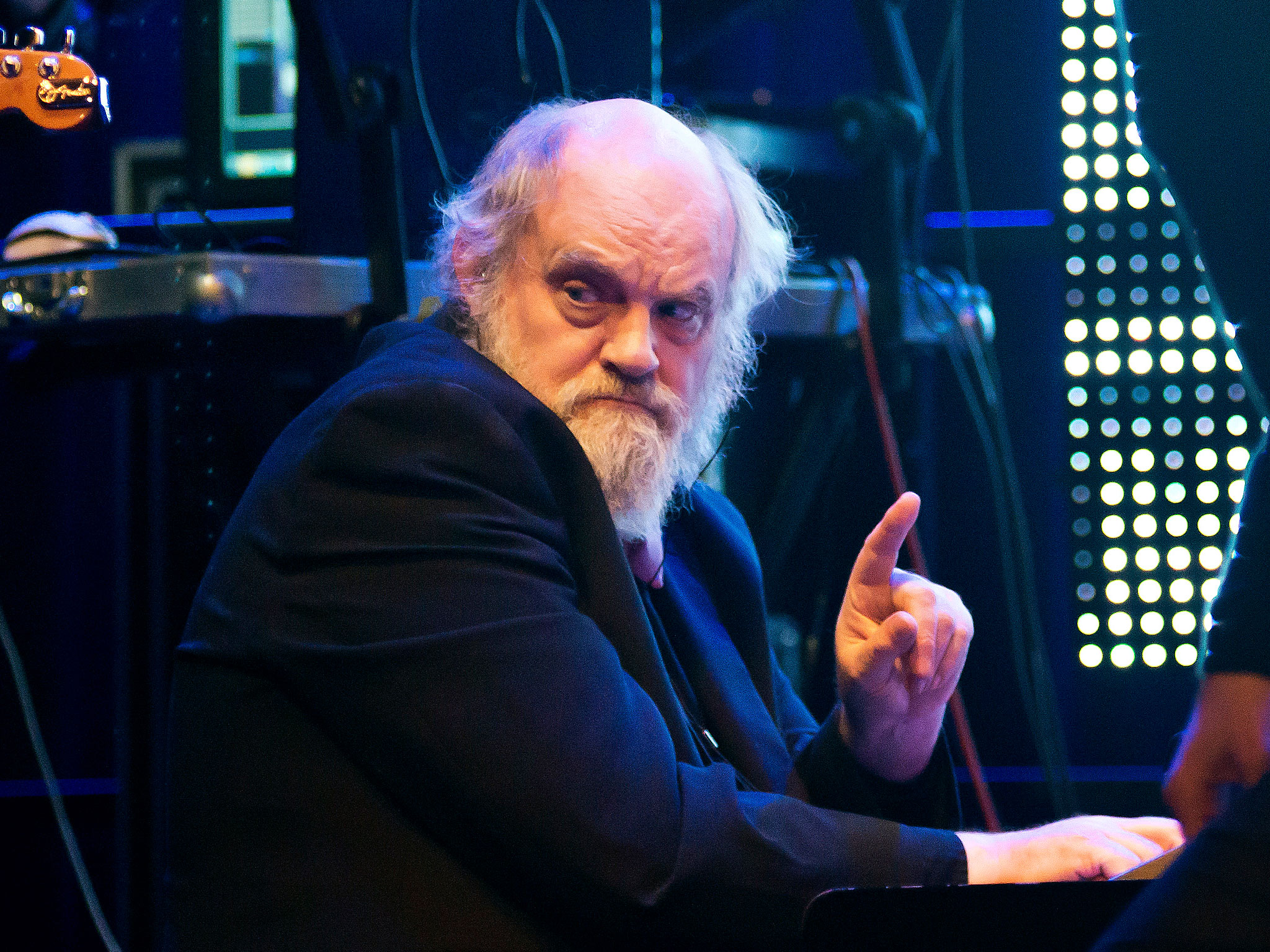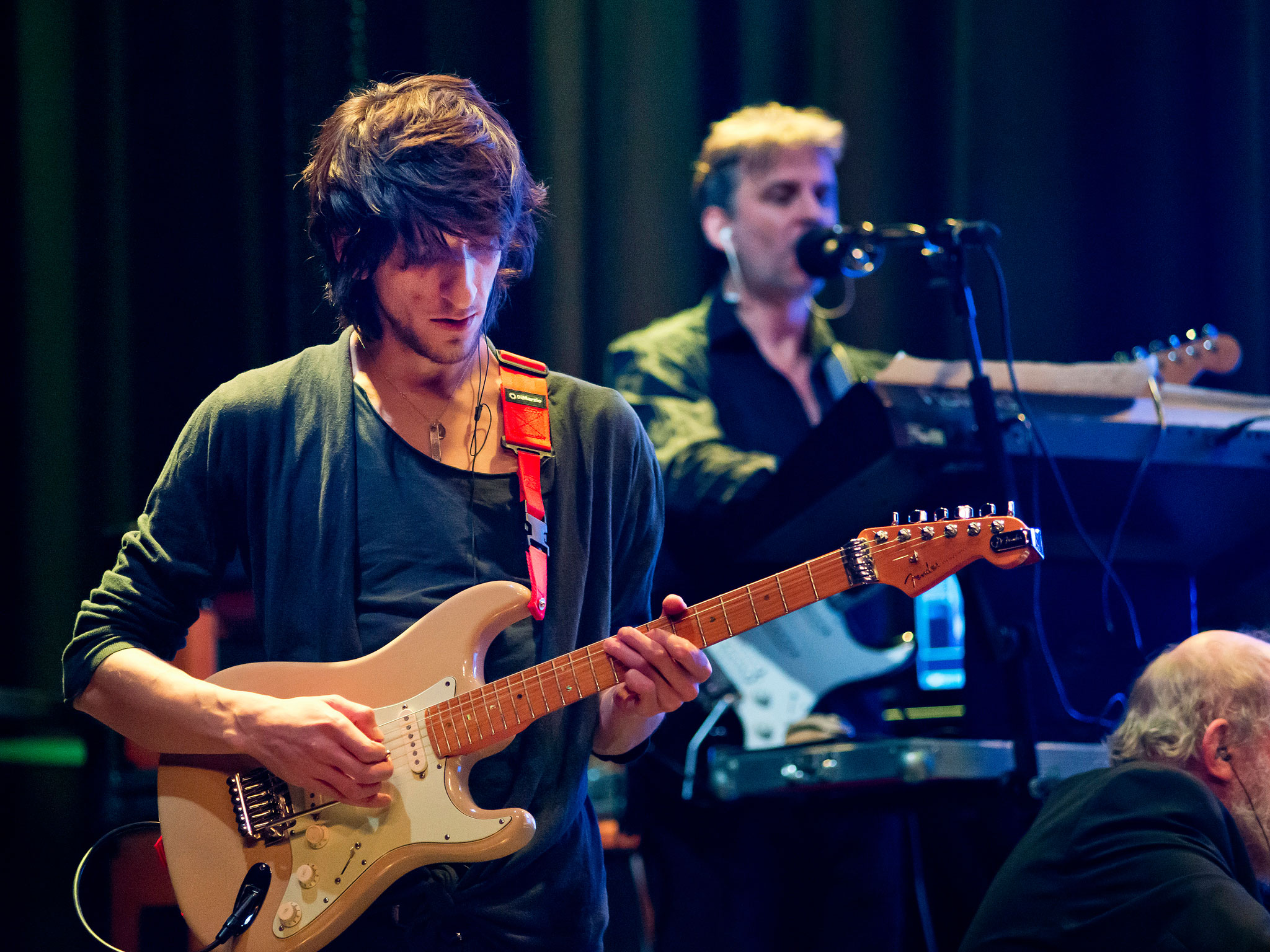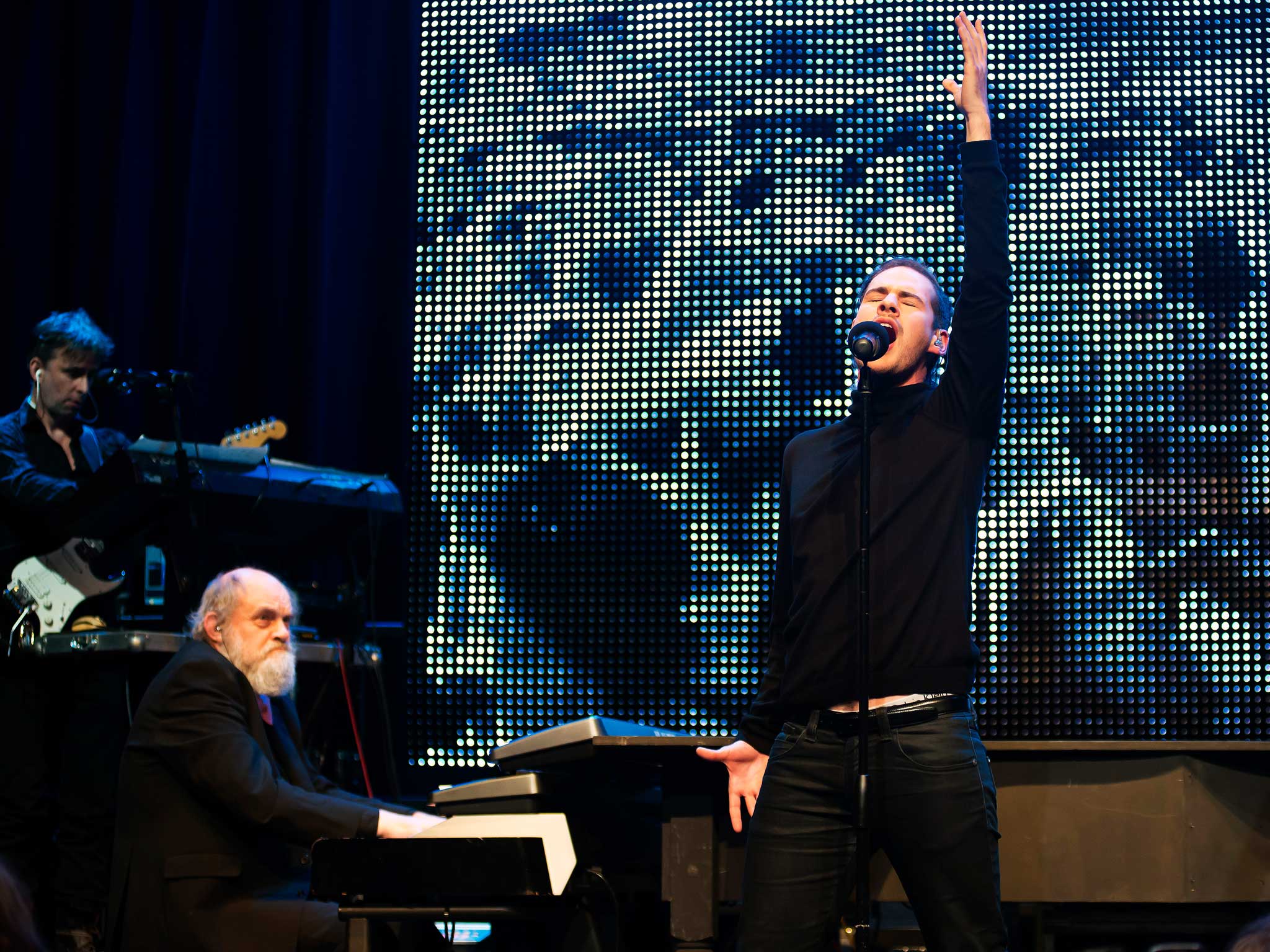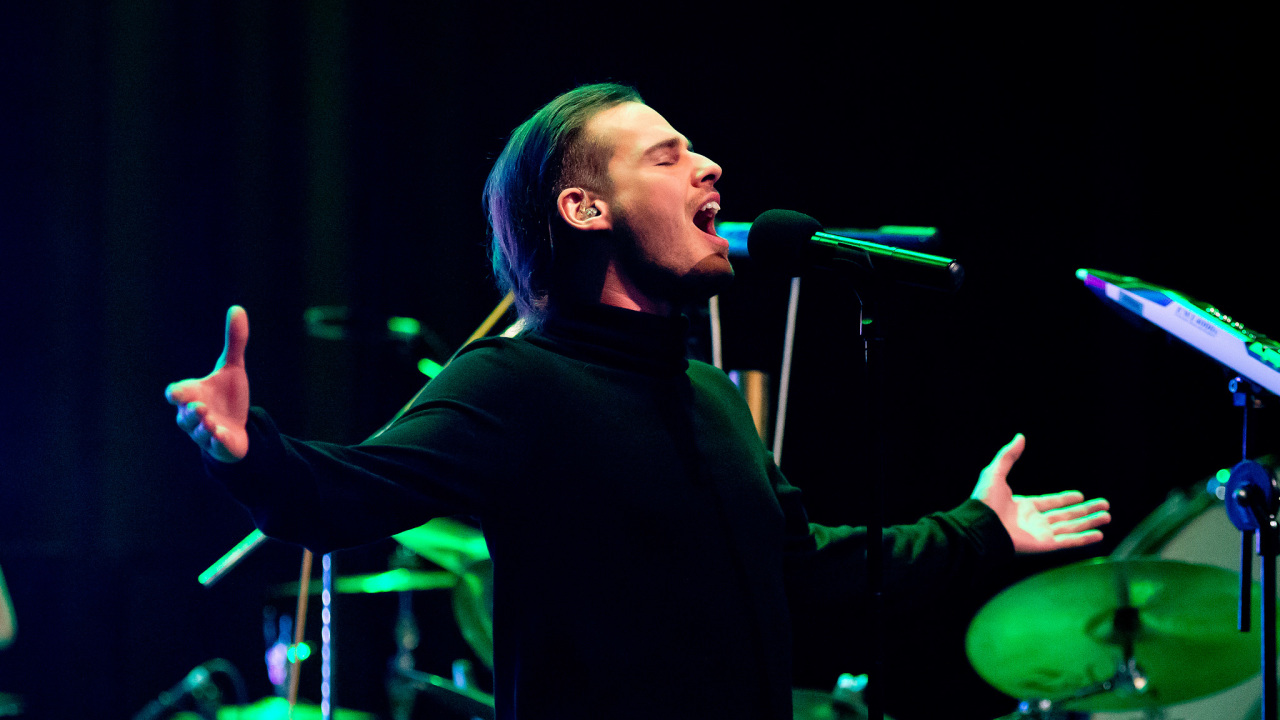There are two people seated close to the front who are really getting into this performance. Their arms are raised in a twirl of activity as they silently mouth every syllable of each song. This animation doesn’t have anyone scurrying to put some distance between themselves and the ‘offending’ pair. On the contrary, the sheer rapt ebullience of tonight’s capacity audience is part of the spectacle as The Enid create The Bridge, their most striking live show yet.
This is a brave approach from the band. But then this is a band who have been reborn in the image and imagination of frontman Joe Payne. The concept is his, and not only is he a charismatic, compelling vocalist, but he also guides the others with a glance and a florid gesture. Together with the visionary Robert John Godfrey, Payne is the fulcrum of the band, providing balance and momentum.
It begins with the swirl of Land Of Hope & Glory, an old fave of Enid live sets, while the giant screen behind them emits images from the 1940s and 50s, both real and recreations. However, this isn’t merely the precursor to a teary nostalgia trip, but rather the introduction to Eniland, a dystopian country that fits somewhere between the portents of Ealing comedies, Spike Milligan, Lindsay Anderson and George Orwell.
Then we’re eased into One And The Many, with Payne’s distinctive vocal flourishes and stage manner enveloping the languid guitar punctuations from Jason Ducker and the keyboard washes of Max Read. It’s an imposing start that leads into the more electronically immersed Terra Firma, before Earthborn takes it all in a heavier direction.
Throughout, the screen is bathed in a succession of scenes, which are cynical and humorous, deflating the pomposity and banality of racial, sexual, religious and social bigotry. Everything – music, visuals, atmosphere – becomes increasingly chilling as this part of the show closes.

At no point throughout is there any attempt from Payne to address the audience. This would spoil a carefully crafted presentation, one that soars impressively as the singer, crouched on top of Godfrey’s piano, unfurls himself during Wings to begin the second act. There’s a sense of injustice tied into the mocking way in which musicians are portrayed as an unsavoury part of society on the screen – presumably the band’s ongoing attempts to get back the rights for their own music is being referenced.
That’s followed by the darkly prophetic Something Wicked This Way Comes, which weaves a web of remarkably primal musical interplay, with dual drummers David Storey and Dom Tofield coalescing their percussive intuitions into a sheet of naked rhythms.
Aside from applause at the end of each composition, the crowd are so immersed in the ongoing audio-visual clamour that there’s scarcely a sound. But this isn’t a classical recital, more that everyone here acts as an extension of the artistry onstage. What The Enid have done, with assistance from top magician Simon Drake, is to make the entire auditorium part of the theatre. This is not about band and audience separated by traditional roles, more about everyone having their own niche, in the process generating an experience that lives way beyond the confines of this time, this space.

After the finale, the band receive a deserved standing ovation, during which Payne introduces each member, while Godfrey reaffirms that it’s now the frontman’s dreams and aspirations that have become the driving force. But it’s fitting that the event concludes with In The Region Of The Summer Stars, the title track of the first Enid album released virtually 40 years ago. This has never sounded more vital, more alive.
The band have performed memorably in the past, even with orchestras, as in Birmingham four years ago. But they’re now taking their passion and belief into a new dimension, using modern technology to augment traditional musical values. It’s The Enid entering the most enticing, engaging and engrossing phase of their career.


